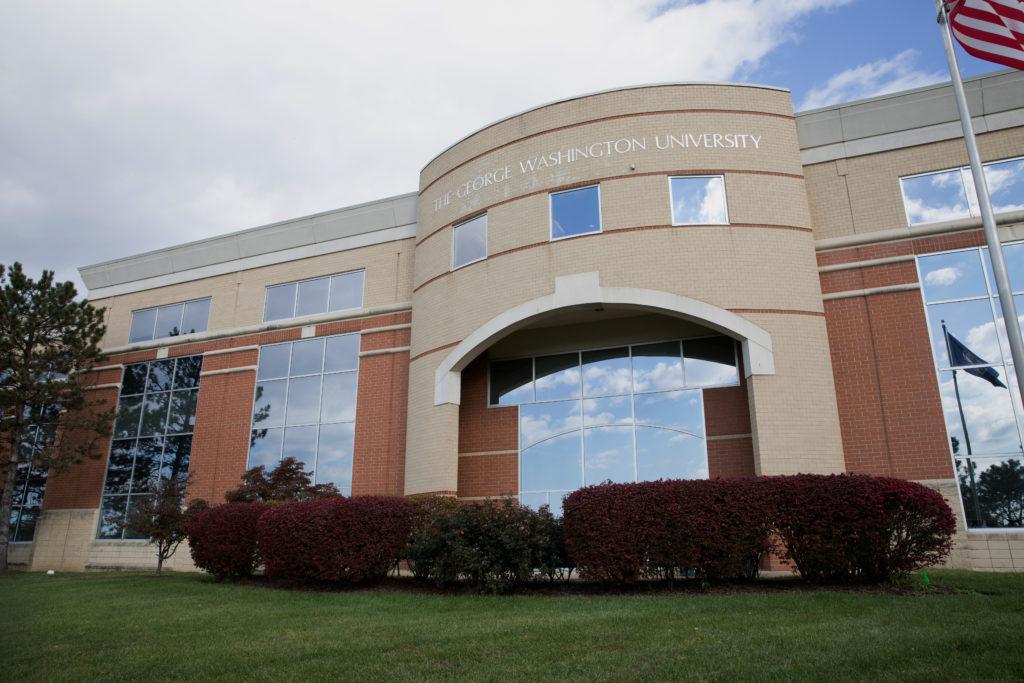The School of Nursing now offers a nursing doctoral program, according to a nursing school release last week.
Kathleen Griffith, the assistant dean for the nursing doctoral program, said the doctoral program enrolled its first cohort of seven students this fall, and the school will accept applications for the 2020-2021 academic year until Jan. 15. Nursing experts said increasing the number of doctoral programs will address nationwide nursing-scientist shortages and help nurses complete patient care in accordance with the best available evidence-based care practices.
Griffith said nursing school officials received approval from the Board of Trustees in May 2018 to begin the program and spent the last year examining market trends in nursing doctoral programs and deciding how to format the program. She said graduates of nursing research doctorate programs drive “practice and policy” change in the nursing field.
“Without enough nurse scientists asking and answering the requisite questions, the evolution of our profession cannot continue,” Griffith said in an email.
She said nursing school officials created the program to boost the number of nursing scientists and educators in the workforce. Griffith added that a wave of aging nursing professors will retire in the coming years, so schools will lack the number of nursing faculty members to admit all “qualified” program applicants.
Colleges and universities nationwide face nursing faculty shortages, according to the American Association of Colleges of Nursing website.
“We have a great need to expand the number of scientists in nursing who will be able to influence human health at the clinical and policy levels,” Griffith said.
Griffith said program participants must complete 57 credits for coursework and dissertation work. She said students spend their first two years in the program completing courses, like research methods and philosophy of science, as a cohort and then begin individual dissertation work.
She added that the educational and research skills nursing doctoral faculty teach students help the program’s graduates conduct research in fields like human health, health policy and nursing education. Griffith said graduates will be equipped to influence health policy in settings like academia, industry and the U.S. government.
“By offering a nursing Ph.D. program at GW, we are able to shape Ph.D. education in a dynamic, interprofessional environment that includes other academic programs in the health sciences, including public health and medicine, among others,” she said.
Nursing experts said doctoral programs in the field teach students how to conduct scientific studies and qualify participants to become professors, which will bring advanced knowledge to workplaces in the nursing field and improve the quality of care nurses provide to patients.
Theresa Beckie, the associate dean of the doctoral program at the University of South Florida, said the Ph.D. program will grant more nursing students the opportunity to conduct medical research and produce more nursing scientists, which will alleviate nationwide shortages.
“Just like physician-scientists are doing their work, our nurse scientists are doing scientific inquiry and coming up with new knowledge that nurses can apply in the field and take forward,” Beckie said.
She said nursing scientists research topics like neonatal care – health care for premature babies – and socioeconomic health disparities that guide how nurses can best treat underserved populations. Beckie added that patients and nurses will “suffer” if current nursing scientist shortages continue.
In 2018, about 7,000 nursing students pursued a DNP degree, but only about 800 students enrolled in nursing doctoral programs, according to a report from the American Association of Colleges of Nursing.
DNP programs focus on specific aspects of nursing practice, like nursing administration or caring for specific populations, but nursing doctoral programs address research and academic initiatives, according to the Duke University School of Nursing website.
“There’s no question that we need bright, energetic scientists to carry the profession forward into the next generation,” Beckie said.
Kristina Thomas Dreifuerst, the director of the nursing doctoral program at Marquette University, said enrollment in nursing doctoral programs, which emphasize teaching and research skills rather than advanced nursing practice education like DNP programs, is largely stagnant.
Nursing school officials are phasing out certain DNP program options to expand focus on advanced nursing practice tracks within the Masters of Nursing Science program.
Dreifurest said the research nursing scientists conduct provides practicing DNP graduates with the knowledge necessary to administer the best available evidence-based care to patients.
“It is really the cream of the crop, and it’s really the group of nurses who will carry the discipline forward,” Dreifurest said. “These are nurses who are really developing and disseminating knowledge about nursing.”
Lois Loescher, the director of the nursing doctoral program at the University of Arizona, said nursing doctoral programs teach students how to write grant proposals and design nursing science studies, which will prepare students to lead research teams.
“It’s important for the nursing discipline to have a voice at the table on research teams that will have an impact on healthcare outcomes from the specific diseases,” Loescher said.





